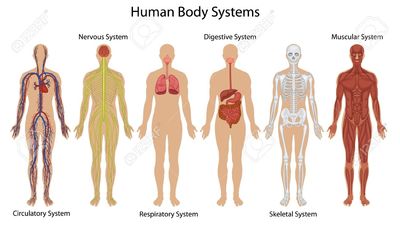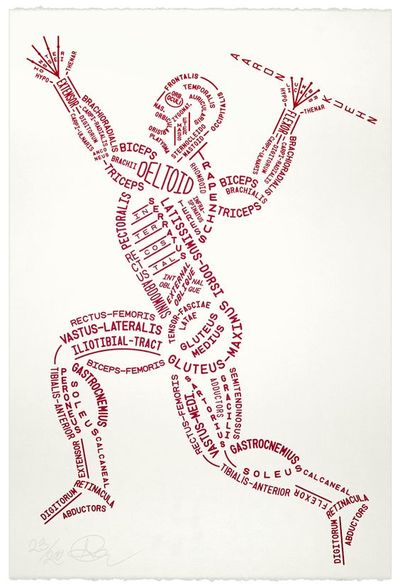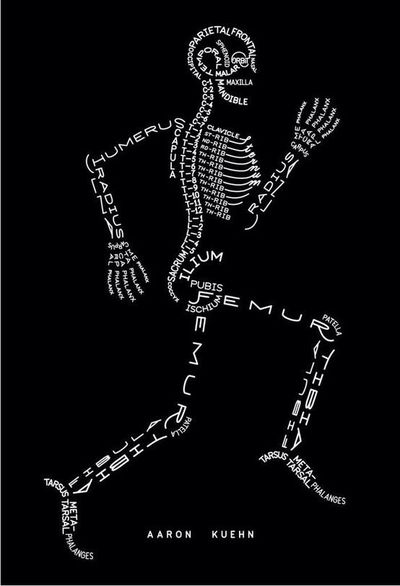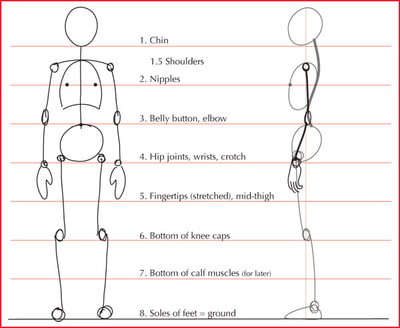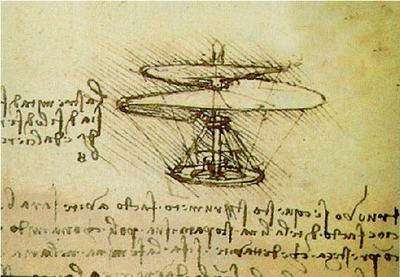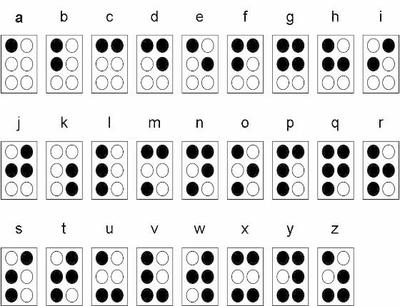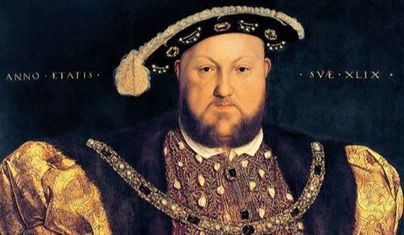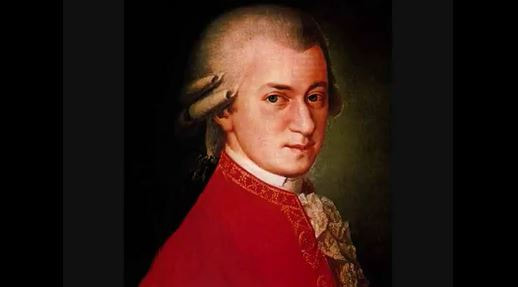Our Amazing World - January
Welcome to January, the first month of the year in the Gregorian calendar!
Here's a little curiosity to get our new year started - Ever wondered how the months of the year got their name?
Why is Sept-ember not the 7th month of the year, and Oct-ober not the 8th? What about Nov-ember and Dec-ember?
Find out a little about the history behind the naming of the months here.
Here's a little curiosity to get our new year started - Ever wondered how the months of the year got their name?
Why is Sept-ember not the 7th month of the year, and Oct-ober not the 8th? What about Nov-ember and Dec-ember?
Find out a little about the history behind the naming of the months here.
A summary of our discoveries from around the world so far this month ...
Discoveries, Events & World Changing PeopleJanuary 1 to 7
January 1, 1502 - Portuguese explorers landed at Guanabara Bay on the coast of South America and named it Rio de Janeiro (River of January). Rio de Janeiro is currently Brazil's second largest city.
January 1, 1660 - Samuel Pepys began his famous diary in which he chronicled life in London including the Great Plague of 1664-65 and the Great Fire of 1666. January 1, 1776 - During the American Revolution, George Washington unveiled the Grand Union Flag, the first national flag in America. January 1, 1801 - Ireland was added to Great Britain by an Act of Union thus creating the United Kingdom of Great Britain and Ireland. January 1, 1863 - The Emancipation Proclamation by President Abraham Lincoln freed the slaves in the states rebelling against the Union. January 1, 1877 - Queen Victoria was proclaimed Empress of India. January 1, 1901 - The Commonwealth of Australia was founded as six former British colonies became six states with Edmund Barton as the first prime minister. January 1, 1958 - The EEC (European Economic Community) known as the Common Market was formed by Belgium, France, West Germany, Italy, Luxembourg and The Netherlands in order to remove trade barriers and coordinate trade policies. January 1, 1959 - Fidel Castro seized power in Cuba after leading a revolution that drove out Dictator Fulgencio Batista. Castro then established a Communist dictatorship. January 1, 1999 - Eleven European nations began using a new single European currency, the Euro, for electronic financial and business transactions. Participating countries included; Austria, Belgium, Finland, France, Germany, Ireland, Italy, Luxembourg, Netherlands, Portugal and Spain. Betsy Ross (1752-1836) was born in Philadelphia, Pennsylvania. She was a seamstress credited with helping to originate and sew the Stars and Stripes flag of America in 1776. January 3, 1924 - British Egyptologist Howard Carter found the sarcophagus of Tutankhamen in the Valley of the Kings near Luxor after several years of searching. January 3, 1496 - Leonardo da Vinci unsuccessfully tested a flying machine. January 3, 1888 - Marvin C. Stone patents the drinking straw. January 3, 1957 - The Hamilton Watch Company introduces the first electric watch. January 3, 1892 - The birthday of JRR Tolkien (Lord of the Rings Author) January 4, Birthday - Louis Braille (1809-1852) was born in France. Blinded as a boy, he later invented a reading system for the blind using punch marks in paper. January 6, Birthday - Joan of Arc (1412-1431) was born in France. After a series of mystic visitations by saints, she inspired French troops to break the British siege at Orleans and win several important victories during the Hundred Years' War (1337-1453) between France and Britain. She was eventually captured and sold to the British who tried her for heresy and burned her at the stake. In 1920, Joan of Arc was canonized a saint by the Roman Catholic Church. January 7, 1714 - A patent was issued for the first typewriter designed by British inventor Henry Mill "for the impressing or transcribing of letters singly or progressively one after another, as in writing." |
Inspiration for your learning adventureWeek 1
Take a Google Earth journey to Brazil and Rio de Janeiro and see what you can uncover.
Learn a few words of Portuguese, and expand your vocabulary. Explore the 'Horrible Histories' of the Great Plague and the Great Fire of London. Warning: the stories involve disease and death. Investigate flags from around the world and throughout history. Learn semaphore or design your own school flag. Which other countries form the United Kingdom? Learn more about each of the countries, their history and culture. * * * * * * * Take a Google Earth trip to Egypt. Check out the Great Pyramids and the tomb of Tutankhamen. Find out how and why the Egyptians created mummies. Learn how to mummify. Discover more about how our bodies work and create a body systems paper doll family. Study images of Leonardo's Flying Machines and create your own paper helicopter with this template or this video. Was the drinking straw a good invention or not? Debate the topic with a friend, or in teams, and present your ideas to the class. Create a 'pros' and 'cons' list to evaluate the invention. Explore other ways to measure time. Can you create your own time measuring device? Visit the school library and search for a fantasy book that captures your interest. Share your discoveries with the class and on BL. Research the Braille alphabet and create a message, using the appropriate symbols, for a friend to decode. Is it easy or challenging to read? Read more about Braille's biography here, here & here. * Why do you think the letters on keyboards have been placed where they are? If you could redesign the modern keyboard what would it look like? |
|
January 8 - 14
January 8, 1935 - Elvis Presley was born in Mississippi.
January 8, 1942 - Steven Hawking, scientist and author was born. January 8, 1958 - Bobby Fischer won his first Chess Championship at the age of 14. January 9, 1793 - The first Hot Air Balloon flight January 10, 1944 Frank Sinatra was born. He is famed for songs such as Killing me softly, My Way and New York, New York. January 10, 1863 - The world's first underground railway service opened in London - the Metropolitan line between Paddington and Farringdon. January 10, 1912 - The flying boat airplane, invented by Glenn Curtiss, made its first flight at Hammondsport, New York. January 10, 1920 - The League of Nations officially came into existence with the goal of resolving international disputes, reducing armaments, and preventing future wars. The first Assembly gathered in Geneva ten months later with 41 nations represented. More than 20 nations later joined, however, the U.S. did not join due to a lack of support for the League in Congress. January 10, 1946 - The first meeting of the United Nations General Assembly took place in London with delegates from 51 countries. The U.N. superseded its predecessor, the League of Nations. January 11, 1964 - The U.S. Surgeon General declared cigarettes may be hazardous to health, the first such official government report. January 12, 1879 - In Southern Africa, the Zulu War began between the British and the natives of Zululand, ultimately resulting in the destruction of the Zulu Empire. January 12, 1737 - American statesman and patriot John Hancock (1737-1793) was born in Braintree, Massachusetts. He was the first signer of the Declaration of Independence. January 13, 1854 The accordion was patented. January 13, 1930 The Mickey Mouse comic strip started January 13, 1957 The Wham-O Company produced the first Frisbee. January 14, 1741 - Benedict Arnold (1741-1801) was born. He was the American Revolutionary War hero who turned traitor, sending information to the British in exchange for money. After obtaining command of West Point in 1780, he conspired to turn over the garrison to the British. However, his plans were discovered and he fled. After the war, he lived in England. January 14, 1690 The clarinet was invented |
Week 2
Listen to a selection of Elvis tunes to see what all the fuss is about.
Find out more about Steven Hawking and his contributions to Science. Play Knight Saves Queen on the iPad, challenge your friends to a game of chess, or try an online challenge at ChessKids. Make and fly a hot air balloon. Ask PM how. Sing along to a selection of songs from Ol' Blue Eyes. * * * * Imagine you had a friend who was thinking of starting to smoke. What would you say to them to make them reconsider? Design an anti-smoking emblem or motto to promote healthy choices. Use Google Earth to travel to Africa and explore the land of the Zulus. Find out about the culture, the land and the native animals. The term John Hancock has come to mean signature. Take some time to practise creating your own individual signature. Can you replicate it time and time again? Is it easy to copy? Try to play a free online accordion here. How many times in your life do you think you've seen an image of Mickey Mouse? 10, 100, 1000? Here's a challenge. Draw him from memory then compare your drawing with an original. How did you go? Make your own Frisbee out of natural or recycled materials. * What does a clarinet look like again? Try this quiz to test your instrument expertise, then listen to a clarinet in action in some covers and classics. |
|
January 15 to 21
January 15, Birthday - Martin Luther King (1929-1968) was born in Atlanta, Georgia. As an African American civil rights leader he spoke eloquently and stressed nonviolent methods to achieve equality. He received the Nobel Peace Prize in 1964. He was assassinated in Memphis, Tennessee, on April 4, 1968. In 1983, the third Monday in January was designated a legal holiday in the U.S. to celebrate his birthday.
January 16, Birthday - French industrialist Andre Michelin (1853-1931) was born in Paris. He started the Michelin Tire Company in 1888, pioneering the use of pneumatic tires on autos. January 17, 1773 - The ship Resolution, sailing under Captain James Cook, became the first vessel to cross the Antarctic Circle. January 17, Birthday - Benjamin Franklin (1706-1790) was born in Boston, Massachusetts. Considered the Elder Statesman of the American Revolution, he displayed multiple talents as a printer, author, publisher, philosopher, scientist, diplomat and philanthropist. He signed both the Declaration of Independence and the new U.S. Constitution. January 17, Birthday - Muhammad Ali was born in Louisville, Kentucky, January 17, 1942 (as Cassius Clay). At age 22 in 1964, he knocked out Sonny Liston to win the world heavyweight boxing championship, shouting out "I shook up the world!" After converting to the Muslim religion, the boxing superstar became an outspoken conscientious objector (on religious grounds) to America's escalating involvement in the Vietnam War and refused military duty upon being drafted. As a result, he was stripped of his boxing title, banned from boxing, and subsequently jailed. After a long legal battle, his conviction was reversed and he regained the championship in 1974 by defeating George Foreman. In the early 1980s, after retiring from boxing, Ali revealed his new struggle with Parkinson's disease. However, he has remained active, devoting himself to various philanthropic and humanitarian causes. January 19, Birthday - Edgar Allen Poe (1809-1849) poet and writer of mystery and suspense tales, was born in Boston, Massachusetts. His works include; The Fall of the House of Usher, Tales of the Grotesque and Arabesque, The Murders in the Rue Morgue and his famous poem The Raven. January 20, 1981 - Ronald Reagan became president of the United States at the age of 69, the oldest president to take office. During his inauguration celebrations, he announced that 52 American hostages that had been seized in the U.S. embassy in Tehran, Iran, were being released after 444 days in captivity. January 21, 1954 - The USS Nautilus, the world's first nuclear powered submarine, was launched at Groton, Connecticut. January 21, 1976 - The Concorde supersonic jet began passenger service with flights from London to Bahrain and Paris to Rio de Janeiro, cruising at twice the speed of sound (Mach 2) at an altitude up to 60,000 feet. |
Week 3
Read a little more about one of the most famous civil rights activists in US history. Research other Nobel Peace prize winners. Find out more about nonviolent protest techniques and the reasoning behind them.
Dive back in history and look at wheel designs before the invention of pneumatic tyres. Would you like to ride a wooden bicycle? Where is the Antarctic Circle? How would Cook know if he crossed it? Use Google Earth to explore the land areas and life below the circle. Explore some of Franklin's scientific discoveries or read more about the Declaration of Independence. Do you think boxing should be banned? Should boxing be introduced at our school? If so, at what age? Debate this idea with your friends. Find out more about what it means to be a conscientious objector. Was Muhammad's treatment fair? What do you think? Watch a clip of the Simpson's take on The Raven (above). Explore more of Poe's poetry. Check out Ronald Reagan in his day's before presidency. Watch a clip of one of his movies. Find out more about nuclear energy. Is it good or bad? Try to convince your friends. Take a look back in time to the day's of the concord or jump forward in time to check out the new developments in passenger 'space' travel. Who was the first lego man in space? Find out more. |
|
January 22 - 28
January 24, 1965 - Winston Churchill (1874-1965) died. He had been Britain's wartime prime minister whose courageous leadership and defiant rhetoric had fortified the British during their long struggle against Hitler's Germany. "I have nothing to offer but blood, toil, tears, and sweat," he stated upon becoming prime minister at the beginning of the war. He called Hitler's Reich a "monstrous tyranny, never surpassed in the dark, lamentable catalogue of human crime." Following the war, he coined the term "Iron Curtain" to describe the barrier between areas in Eastern Europe under Soviet Russia's control and the free West.
January 24, 1972 - Japanese soldier Shoichi Yokoi was discovered on Guam after he had spent 28 years hiding out in the jungle not knowing World War II had long since ended. January 25, 1533 - King Henry VIII married his second wife, Anne Boleyn, in defiance of Pope Clement who had refused to annul his first marriage. The King later broke all ties with Rome and became Supreme Head of the Church of England. January 26, 1788 - The British established a settlement at Sydney Harbor in Australia as 11 ships with 778 convicts arrived, setting up a penal colony to relieve overcrowded prisons in England. January 27, Birthday - Wolfgang Amadeus Mozart (1756-1791) was born in Salzburg, Austria. From the age of five, through his untimely death at age 35, this musical genius created over 600 compositions including 16 operas, 41 symphonies, 27 piano and five violin concerti, 25 string quartets, 19 masses, and many other works. January 27, Birthday - British novelist Lewis Carroll (1832-1898) was born in Daresbury, Cheshire, England (as Charles Lutwidge Dodgson). Best known for Alice's Adventures in Wonderland and Through the Looking Glass. He also lectured in mathematics and was a pioneering photographer. January 28, 1986 - The U.S. Space Shuttle Challenger exploded 74 seconds into its flight, killing seven persons, including Christa McAuliffe, a teacher who was to be the first ordinary citizen in space. Birthday - Explorer Henry Stanley (1841-1904) was born in Wales. As a newspaper correspondent for the New York Herald, he was given the challenging assignment of finding missionary-explorer David Livingston in Africa. Upon locating Livingston near Lake Tanganyika in 1871 after an exhausting search, Stanley simply asked, "Dr. Livingston, I presume?" |
Week 4
Click the pic above to explore a few of Winston Churchill's more famous quotes. * Note: while most are inspiring, one or two may show a less flattering side to his personality.
Create a story of your own where a character discovers important news long after the event. How will this influence the character? What will the implications and complications be? Share your finished story with others. Click on the pic of King Henry VIII below and find out more about his remarkable, though perhaps not so admirable, life. * Listen to some of Mozart's most famous musical compositions by clicking on the pic below. Which is your favourite? Which had you heard before? Try closing your eyes and listening to one of his compositions, then use the music as inspiration for a poem or story of your own. Read one of Lewis Carroll's most famous stories, that of Alice in Wonderland, for free here. * * |
|
January 29 - 31
January 29, 1916 - During World War I, the first aerial bombings of Paris by German zeppelins took place.
January 31, Birthday - Jackie Robinson (1919-1972) was born in Cairo, Georgia. He was the first African American to play professional baseball. He played for the Brooklyn Dodgers from 1947 to 1956, was chosen as the National League's most valuable player in 1949 and elected to the Baseball Hall of Fame in 1962. February 1, 1960 - In Greensboro, North Carolina, four African American students sat down and ordered coffee at a lunch counter inside a Woolworth's store. They were refused service, but did not leave. Instead, they waited all day. The scene was repeated over the next few days, with protests spreading to other southern states, resulting in the eventual arrest of over 1,600 persons for participating in sit-ins. February 1, 2003 - Sixteen minutes before it was scheduled to land, the Space Shuttle Columbia broke apart in flight over west Texas, killing all seven crew members. The accident may have resulted from damage caused during liftoff when a piece of insulating foam from the external fuel tank broke off, piercing a hole in the shuttle's left wing that allowed hot gases to penetrate the wing upon re-entry into the Earth's atmosphere. This was the second space shuttle lost in flight. In January 1986, Challenger exploded during liftoff. February 2, 1990 - In South Africa, the 30-year-old ban on the African National Congress was lifted by President F.W. de Klerk, who also promised to free Nelson Mandela and remove restrictions on political opposition groups. February 3, Birthday - The first female physician in the U.S., Elizabeth Blackwell (1821-1910) was born near Bristol, England. As a girl, her family moved to New York State. She was awarded her MD by the Medical Institute of Geneva, New York, in 1849. She then established a hospital in New York City run by an all-female staff. She was also active in training women to be nurses for service in the American Civil War. January 31 2018 - It's a Super Blue Blood Moon Eclipse |
Week 5
What is a zeppelin? Can you imagine how terrifying, and terrifyingly slow that air raid must have been? Research to find out more, or lighten your spirits by designing a balloon-based flying machine of your own in our mini-maker's space.
Play a game of multiplication baseball with your learning team. See M for the rules. Who will be the winning team? Can sit-ins work? Find out more about how peaceful protests can change the world here. Find out more about the first lego man in space and the boys who put him there, here. Or, check out this teddy in space. Find out more about renowned African hero Nelson Mandela by exploring his biography at BBC Primary History. Find out more about other women who've become leaders in their field, or challenged the status quo (you may need to define 'status quo' first :) What language do you think it might be from? Why? ). Find out about eclipses. What causes them? Why does the moon turn blood red, and what's that got to do with our daily sunsets? Where and when can you see January's 2018 eclipse? Click a link for more. |
To continue learning about world changing people, events and inventions for Week 5, click here to jump to February.
... and that's it for this month, but before you go, let's put your new knowledge to the test. How many bones in the human body can you identify? Click on the pic below to test your skills.
